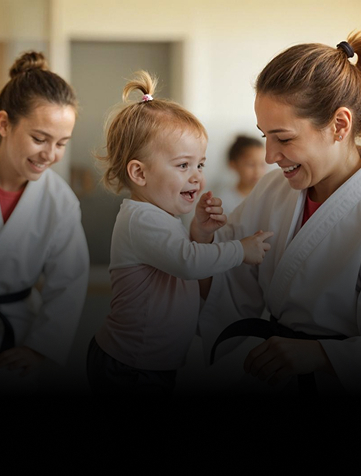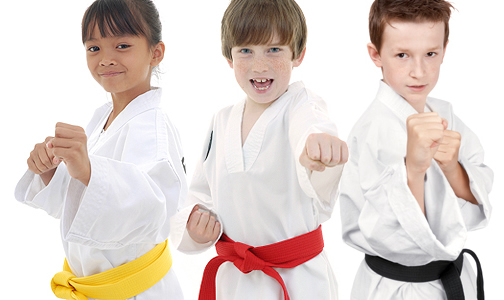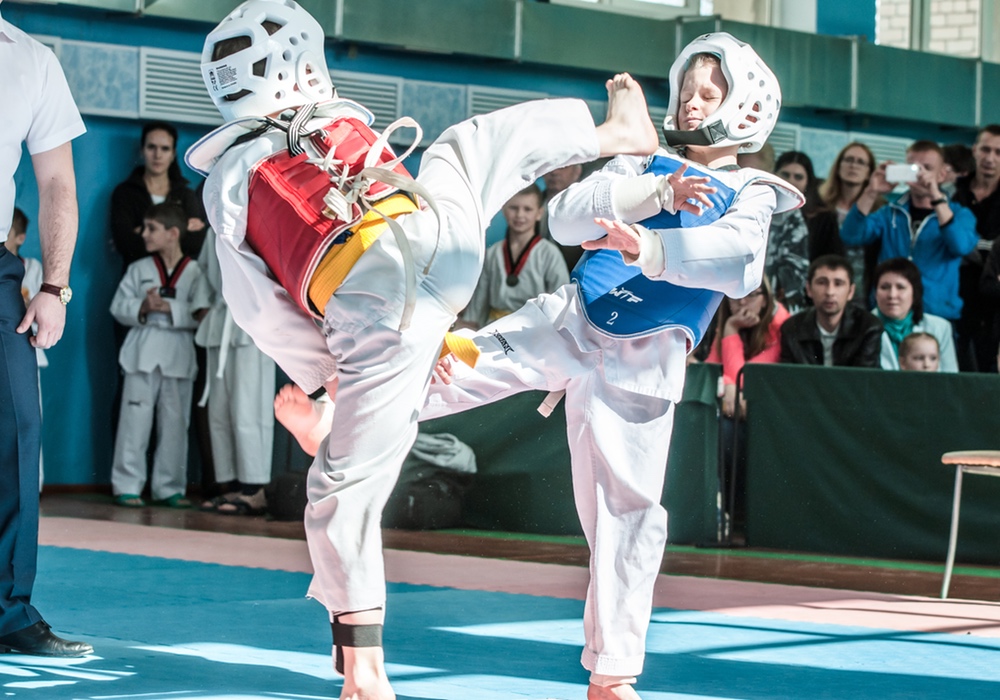Best Martial Arts for Families – Learn, Bond, and Train as a Family Team
How Martial Arts for Kids Can Boost Self-confidence and Discipline in Young Martial Artists
Karate for children offers an one-of-a-kind possibility to develop self-confidence and technique in young martial artists. As they discover brand-new strategies and face difficulties, they not just gain skills however additionally create a strong feeling of self-regard. This structured environment motivates them to value the trip of improvement. Yet exactly how does this training equate right into their day-to-day lives? Discover the much deeper links that make karate greater than just a sport.
The Value of Self-confidence in Childhood Growth
Self-confidence is a necessary foundation in childhood development. When you nurture your child's self-worth, you encourage them to face challenges, take risks, and express themselves freely. Kids with confidence are a lot more ready to check out brand-new activities and social circumstances, which can lead to lasting relationships and beneficial experiences.Encouraging your youngster to get out of their comfort zone cultivates strength. They find out that failing isn't completion yet rather a stepping rock to success. By commemorating their success, despite just how tiny, you assist them acknowledge their capacities and worth.In this trip, assistance and positive reinforcement from you play a crucial function. Whether it's through appreciation or merely existing, your participation increases their confidence. As they grow, this confidence comes to be a long-lasting asset, outfitting them to browse both challenges and possibilities with a strong sense of self.
How Martial Arts Instructs Discipline and Emphasis
Martial arts assists you develop discipline and emphasis through its organized training regimen. As you exercise mindfulness during each session, you'll find out to focus better both on and off the mat. And also, setting and attaining goals in martial arts strengthens your ability to stay committed and alert.
Structured Training Regimen
While you participate in karate training, you'll rapidly uncover how an organized routine instills self-control and focus in young practitioners. Each class adheres to a particular layout, including workouts, strategy method, and sparring. This consistency educates you to dedicate and respect the procedure to improvement. As you discover kinds and methods, you develop a sense of duty for your very own progress.The organized environment encourages you to set objectives, whether mastering a new belt or improving a kata. You'll locate that remaining concentrated throughout drills and courses hones your concentration. The self-control you grow in martial arts expands past the dojo, favorably affecting your schoolwork and everyday routines. Each session reinforces the significance of dedication, helping you grow into a more disciplined individual.
Mindfulness in Method
As you practice karate, you'll find that mindfulness becomes a vital part of your training. Each relocation needs your complete interest, assisting you stay concentrated on today minute. You'll learn to tune out interruptions and concentrate on your breathing, movements, and purposes. This enhanced understanding develops your reflexes and improves your discipline.During sparring or types, you'll discover the importance of being emotionally present - Karate Salisbury MD. You'll notice how this emphasis not just improves your strategy however also constructs your confidence. By practicing mindfulness in karate, you grow persistence and strength, essential attributes that prolong beyond the dojo. By doing this, martial arts instructs you to harness your mind, aiding you establish a disciplined strategy to difficulties both on and off the mat

Setting Goal Techniques
Setting objectives in karate isn't almost earning belts; it's an effective way to cultivate self-control and focus. When you establish certain, attainable targets, you produce a roadmap for your development. For example, rather than just intending to enhance your kicks, try focusing on mastering a particular strategy every month. This approach maintains you determined and engaged.Breaking down larger goals right into smaller sized, workable steps helps you track your progression and celebrate little triumphes in the process. Whether it's improving your position or boosting your sparring endurance, every goal enhances your dedication. As you attain these goals, you'll build self-confidence in your skills and develop a strong feeling of self-control that extends past the dojo into day-to-day life.
Structure Resilience With Martial Arts
Martial arts, particularly martial arts, provides children a special opportunity to construct resilience in a supportive setting. In courses, they face obstacles that press their limitations, whether it's competing or understanding a new method with a partner. Each obstacle, like a missed out on kick or a shed match, comes to be a chance to find out and grow.As they exercise, youngsters find out to embrace discomfort and maintain attempting, even when things obtain challenging. They find that failing isn't the end; it's part of the trip. This attitude assists them recuperate stronger, not simply in the dojo, but in day-to-day life.With each challenge they get rid of, your youngster builds confidence in their capability to take on challenges, sustaining their determination. With martial arts, they'll recognize that strength isn't nearly physical strength; it has to do with mental grit and willpower, encouraging them to face whatever life throws their way.
The Function of Respect in Karate Training
Respect is a foundational principle in karate training, promoting a culture of self-control and sociability amongst trainees. When you step onto the dojo floor, you're not just discovering methods; you're also learning to respect look at this site your instructors, peers, and the art itself (Karate Salisbury MD). Bowing at the beginning and end of class isn't just a procedure; it signifies your acknowledgment of others' dedication.as and initiatives you create common regard, you'll discover it enhances your learning experience. You'll listen more diligently to your teacher and gain insights from fellow students. This setting urges constructive criticism and assistance, enabling everybody to grow together.Moreover, regard cultivates self-discipline. Recognizing the value of tough work and humility assists you remain concentrated on your training. Consequently, this regard translates into your day-to-day life, boosting your interactions and relationships outside the dojo. With karate, you find out that respect is important for personal development and community structure
Attaining and setting objectives Success in Karate

Social Abilities and Team Effort in the Dojo
While training in the dojo, kids naturally create essential social abilities and synergy capabilities. As they exercise together with peers, they discover to communicate effectively, share room, and support one another. Each course provides chances for cooperation, whether it's throughout partner drills or group exercises. This team effort promotes relationships and produces a sense of belonging, making the dojo a nurturing environment.Kids also obtain useful conflict resolution abilities. When they run into challenges, such as disagreements during sparring, they find out to navigate these scenarios constructively. They practice perseverance and empathy, recognizing that every person has different toughness and weaknesses.Moreover, taking part in team activities their explanation grows a feeling of accountability. You'll see your youngster learning to rely upon colleagues and take obligation for their duty in a group. These experiences not just boost their martial arts journey yet also furnish them with social devices they'll carry into various other locations of life.

The Long-Term Benefits of Martial Arts Beyond Childhood Years
As youngsters mature and shift right into the adult years, the benefits of karate expand much beyond the dojo. You'll locate that the technique and focus learned via karate can translate right into your academic and professional life. Setting and attaining objectives in martial arts promotes a strong job principles, which can press you to master any endeavor.Moreover, the self-confidence got from sparring and mastering strategies can enhance your self-worth, assisting you tackle difficulties head-on. This resilience comes to be indispensable as you encounter the unpredictabilities of adulthood.Additionally, the social skills developed through synergy and friendship in the dojo can cause better partnerships in both professional and individual spheres. You'll learn to connect efficiently, willpower conflicts, and develop an encouraging network.Ultimately, karate shapes not just skilled martial artists, yet well-rounded individuals all set to tackle the world.
Often Asked Inquiries
What Age Is Finest to Start Karate for Kids?
You can begin martial arts as very early as age four or five, however it often depends upon your kid's maturation and passion. Finding a class that fits their age and power degree makes a large difference.
Are There Any Type Of Wellness Benefits From Practicing Karate?
Yes, practicing karate offers many health and wellness advantages. You'll boost your control, toughness, and adaptability while enhancing cardio fitness. Plus, it improves focus and psychological health, making it a fantastic choice for total physical and psychological health and wellness.
Exactly How Typically Should Children Participate In Karate Classes?
You should urge your children to go to karate classes at the very least 2 to 3 times a week. Uniformity helps them learn strategies successfully and develop abilities, making their experience a lot more delightful and gratifying over time.
Can Karate Assist With Handling Stress And Anxiety in Children?
Yes, karate can help handle anxiety in kids. It teaches focus and self-discipline while giving a safe outlet for power. You'll observe your kid expanding a lot more tranquil and positive as they practice regularly.
What Gear Is Required for Kids Beginning Martial Arts?
